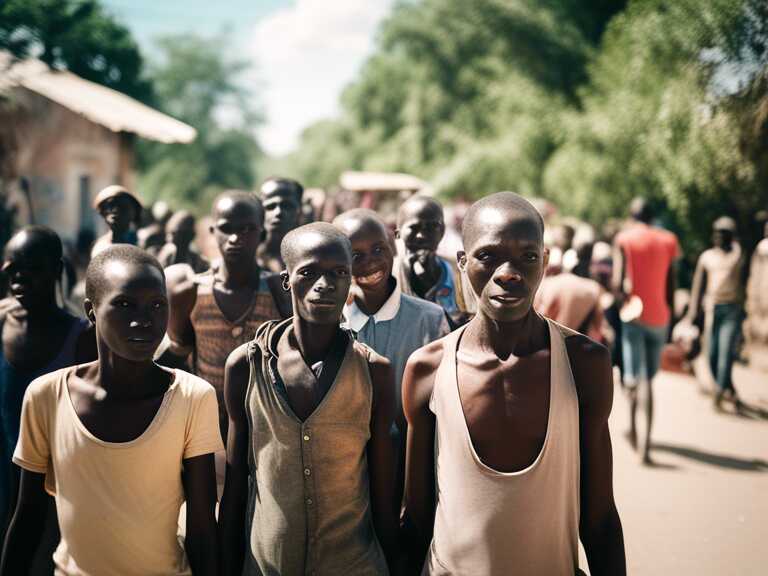
Dominican Deportations Spark Human Rights Crisis in Haiti
Under a new policy, Dominican authorities are deporting thousands of Haitians, alleging abuses and overburdened public services.

The dusty border city of Belladere is witnessing the consequences of mass deportation policies and the challenges that come with it. The recent influx of deportees, some dressed in work clothes and others barefoot, seeking food, water, and medical care, paints a grim picture of the humanitarian crisis at the border. The situation has reached a critical point, with deportees sharing harrowing stories of what they endured in the neighboring Dominican Republic.
Haitian migrants share harrowing stories of abuse
Many deportees recounted instances of abuse by Dominican officials, including unauthorized home raids, racial profiling, and even the deportation of breastfeeding mothers and unaccompanied minors. The surge in reported human rights violations has raised alarms among activists and civil organizations, leading to growing concern about the treatment of deported individuals.
Dire Conditions Faced
The dire conditions faced by the deportees are evident as they line up for basic necessities in the Haitian border city. The scorching sun adds to their suffering as they seek refuge, undeterred by the harsh reality of being forcibly returned to their home country.
Reports of Continued Struggles
Despite efforts to crack down on illegal border crossings, many deportees continue to find ways to re-enter the Dominican Republic. The testimonies of those who attempt to cross the border illegally expose the depth of their desperation and the lengths to which they will go to escape their circumstances. The resilience of those facing deportation and their determination to seek better opportunities in the Dominican Republic despite the odds is a testament to the enduring human spirit.
Faced with the realities of deportation, some individuals are driven to take extreme measures to evade the consequences of being sent back to their home country. The presence of smugglers offering illegal ways to cross the border further underscores the complexities of migration in the region.
The Haitian Border Town's Response
The situation is also affecting the border town's non-profit help center, where deportees line up to receive food and support from organizations like the one mentioned. The growing number of deportees is overwhelming the limited resources available to assist them, exacerbating the humanitarian challenges faced by the community.
The testimonies of deportees shed light on the human cost of deportation policies, revealing the emotional and psychological toll it takes on individuals and families torn apart by geographical and bureaucratic barriers. The struggles faced by these individuals serve as a reminder of the urgent need for a humane and just approach to migration that respects the rights and dignity of all individuals, regardless of their legal status.
The exposure of deportees to abuses, the dire conditions they face, and the continued struggles of those attempting to re-enter the Dominican Republic contribute to the rising tensions between the two countries. The growing discontent among activists, civil organizations, and the international community calls for a reevaluation of the current deportation policies and a renewed commitment to finding a fair and sustainable solution to the challenges of migration.
Share news















